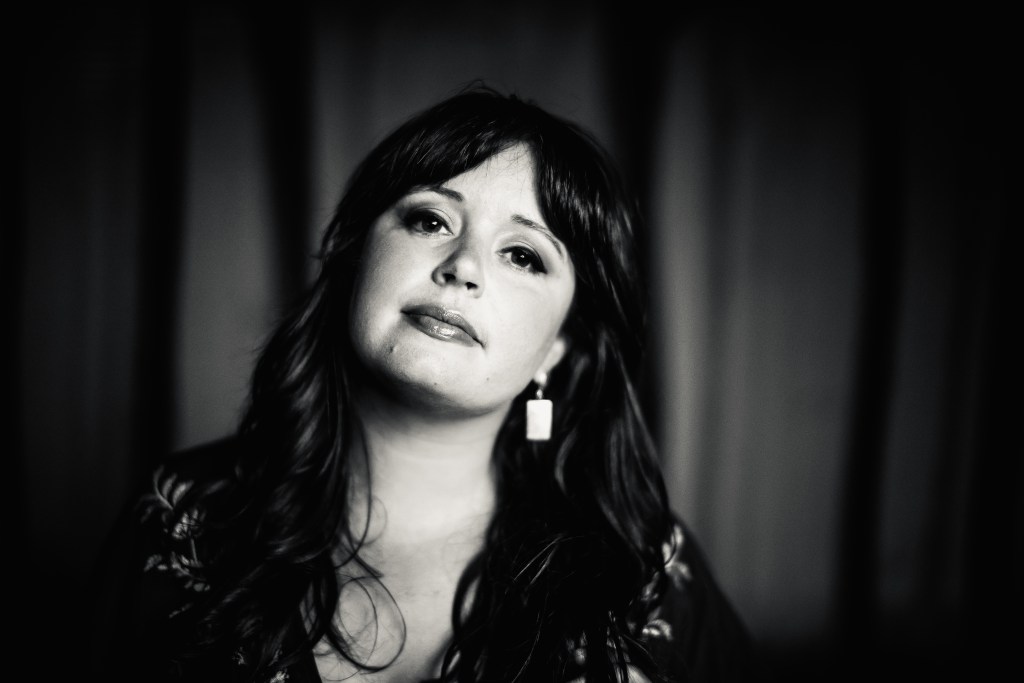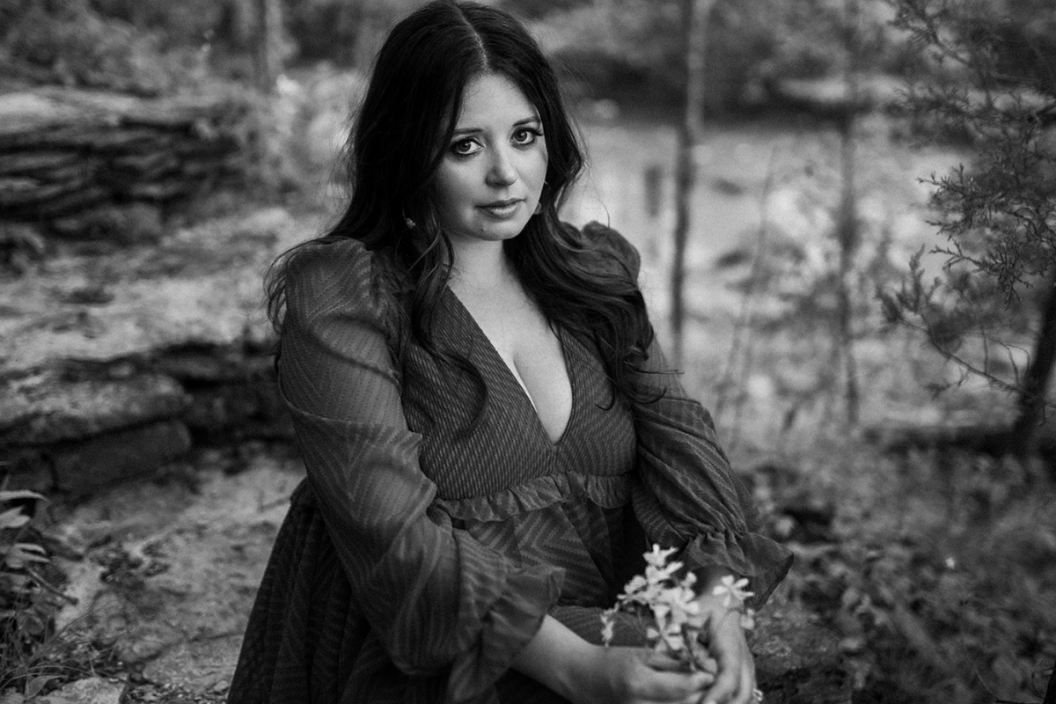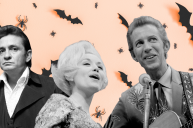We know all about Macbeth from the iconic Shakespearean play of the same name, but far less is known about the three witches that told the prophecy of him eventually ascending to King of Scotland. That's set to change with Built On Bones, an eerie and spooky six song EP from country and folk artist Emily Scott Robinson out now via Oh Boy Records that flips our perceptions of the witchy trio upside down.
This comes due to the witches commonly being portrayed as two dimensional since Macbeth was written during the reign of King James, who was equally fascinated and terrified by witchcraft, leading to him perpetuating countless sham trials throughout England and Scotland. Traditionally dark, sinister, evil and ugly characters, Robinson instead sought out to cast these women who were instead folk healers, midwives and teachers in a more positive light.

Neighborhoods Apart Productions
"We wanted to bring life and power back to these witches, making them three-dimensional by recasting them as the interesting, funny, beautiful and sexy women they are," says Robinson. "In doing that we hope to counter the centuries of the mis-portrayal of women in witchcraft in order to empower a new generation."
The idea to write these Macbeth-themed songs, ultimately recasting the witches, came from Colin Sullivan, the director at the Telluride Theatre in Colorado, who approached Robinson in the spring of 2021 with the idea of composing songs for a local production of the play. Never having embarked on such a project despite having long desired to do so, it was an opportunity she couldn't pass up. According to Robinson, it was also one over pouring with inspiration.
"It was so fun as a writer because I had centuries worth of ideas about witchcraft and this text to work from," says Robinson. "[Macbeth] has so many rich themes to draw from like ambition, greed, love and lust that it made the process pretty easy, especially compared to my original music."
Even with all of the material to pull from, Robinson says that most of Built On Bones isn't taken directly from the texts of Macbeth, instead acting as anecdotes by referring back to some of the play's most pivotal moments. However, there are exceptions to this, primarily on the collection's title track that lays out the witches prophecy delivered to Macbeth.
Another comes on "Double Double," easily the album's most haunting tune as it describes the witches' incantation ripe with eye of newt, toe of frog and other stomach churning ingredients. As the song goes on, the incantation's recipe navigates from items originally listed in Macbeth's texts along with Robinson's own conjured up additions like children's teeth and a harvest moon.
For further assistance in writing the song Robinson sat down with the witches who performed on the Telluride Theatre's production of Macbeth to crowdsource additional witchy and dark ideas to throw into their homemade potion.
"Then there's things like 'ashes of our sisters burned' that is a very direct reference to the witch trials," says Robinson. "Everything in the song was picked out with intention and purpose."
As for the witches singing on the EP, helping to multiply its creepy vibe are vocalists Alisa Amador and Lizzy Ross (of Violet Bell), the latter of whom Robinson already had a steady rapport with after she sang all over the artist's Oh Boy rebut American Siren. Together the three vocalist's voices melt into one, further advancing the project's spine-chilling sensation.
"There are moments even now where I listen to the songs and can't pick out who's singing what," says Robinson. "It was so magical. Lizzy and Alisa are both great musicians who understood the bigger mission of the project."
Robinson, Ross, and now Amador bring Built On Bones full circle with American Siren on "Old Gods," a song Robinson wrote for Macbeth that also snuck onto her previous album before she knew this concept EP would become a reality. The reimagined song appears twice on Built On Bones, first as a "theatrical version" with pedal steel and a string section and later as a "minor reprise that better embodies the feeling of longing present within following Lady Macbeth's death in "Sleep No More."
Rounding out the EP is "Men And Moons," an invigorating track that acts as an epilogue to the play, or in this case album, that ends with lots of death and a new King crowned. A stripped back bluegrass-y ballad, the song acts as further closure to an otherwise messy conclusion.
"We thought that was too neat of an ending for all of the murder that occurred," says Robinson. "Part of having the witches in such a big role was about balancing out Macbeth's masculine narrative with a feminine energy and narrative. In the song the witches are joined by the other women in the show who died to collectively sing about the cycles of life and planting the seeds that you want to see grow."
In addition to Macbeth, the closing track is inspired heavily by Alexander Carmichael's Carmina Gadelica, a collection of texts from the Scottish highlands in the 1800s. Despite coming from after Shakespeare penned Macbeth, its comprised of many the same Scottish and Celtic pre-Christian beliefs and traditions present during his time, making it highly appropriate to reapply to the times of the play.
Similar to how the rest of the EP was inspired by witchcraft and Macbeth, "Men And Moons" use of the Carmina Gadelica mostly comes from indirect references, with Robinson finding use in several of its turns of phrases, prayers and poems in writing the cathartic closer.
"I wanted it to feel light and like an ending or rebirth," says Robinson. "It really brings a breath of fresh air to the end of the project, much like an epilogue does a play or novel."
Throughout its half dozen tracks, Built On Bones perfectly lays out a case for not judging a book, play or person by its cover. Long cast as simple-minded, unattractive and downright evil, Robinson and her witchy enclave of like-minded creatives have flipped the script of the characters they've gone on to portray, illustrating that everyone is redeemable and nothing is set in stone. The end result is a project that fans of Macbeth will love and those unfamiliar with it will appreciate and hop down the rabbit hole with too.
"We really wanted to cast the witches just like the humans in the play, capable of both light and darkness, and I think we did just that," says Robinson. "I hope listeners pick up on these complex and strong characters and are able to walk more confidently through their own lives because of them."




